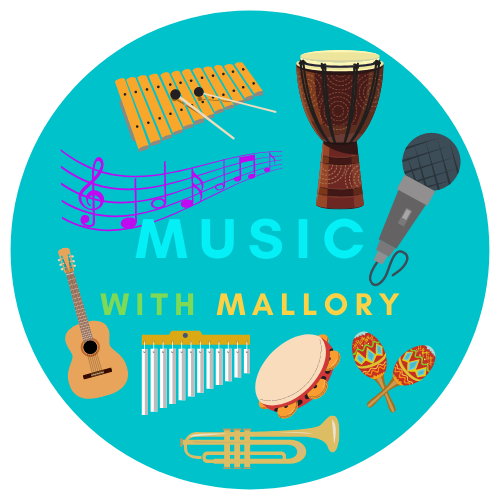Frequently Asked Questions
What precautions are you taking with COVID-19?
All instruments and touch points are cleaned between clients. Masks are currently optional; Ms. Mallory will wear a mask if you are wearing a mask. Hand hygiene is required before each session with hand sanitizer and bathrooms available. Groups have been capped at five participants.
What’s the benefit of coming into your location? Why choose this over in-home services?
Coming into a location where there are clear expectations of what activities are done there helps clients to build a structure in their mind, to focus better, and to achieve more. Often in home-based services, distractions like siblings, the TV, toys, pets, other family members moving around, et cetera, can be a deterrent to learning or performing at their best. Traveling to our space allows the client to benefit from Ms. Mallory’s extensive collection of instruments, music, resources, and tools. Furthermore, making the trip out allows valuable practice on transitions, social skills, and etiquette in public.
Will you come to my location?
Yes! Ms. Mallory is in the process of hiring someone to provide in-home services. Stay tuned for updates!
Do you offer Telehealth or Virtual Lessons?
Yes! Ms. Mallory has offered both through the duration of the pandemic and is happy to do so. In-person lessons and therapy offer more benefits like hands-on instruction, demonstration and adjustments, use of instruments that one may not have at home, and time coordination for music making. However, individuals with a longer attention span for the screen can benefit from both Telehealth and Virtual Lessons. Ms. Mallory uses many online tools to make these remote sessions interesting and fun.
Is Music Therapy right for my child?
If they are interested in or motivated by music, probably! A free assessment session with Ms. Mallory’s expertise can help answer that question on a case by case basis. Generally, music is intrinsically motivating and so it makes the work of therapy feel fun and engaging. Please email or call with specific questions!
What conditions or diagnoses can Music Therapy help?
Though certainly not an exhaustive or an exclusive list, the following should help you understand the types of conditions that can be served by Music Therapy:
Autism
Down Syndrome
Cerebral Palsy
Sensory Processing Disorder
Stroke
Alzheimer’s/Dementia
Parkinson’s
Intellectual or Developmental Disabilities
Sensory Impairment
Depression
William’s Syndrome
Anxiety
ADHD
Rett’s Syndrome
Borderline Personality Disorder
What ages do you offer services to?
Group Classes: Ages four and up
Individual Lessons: Ages four and up
Music Therapy: Toddlers, preschoolers, children, adults, older adults
Group Music Therapy: Ages four and up
